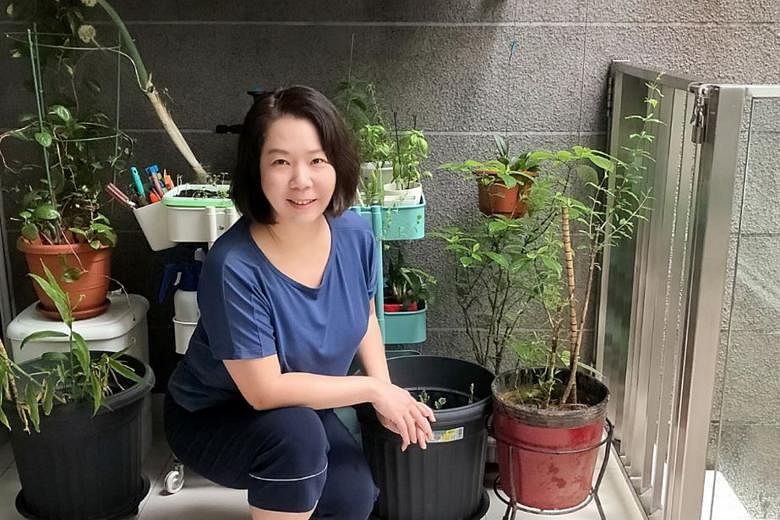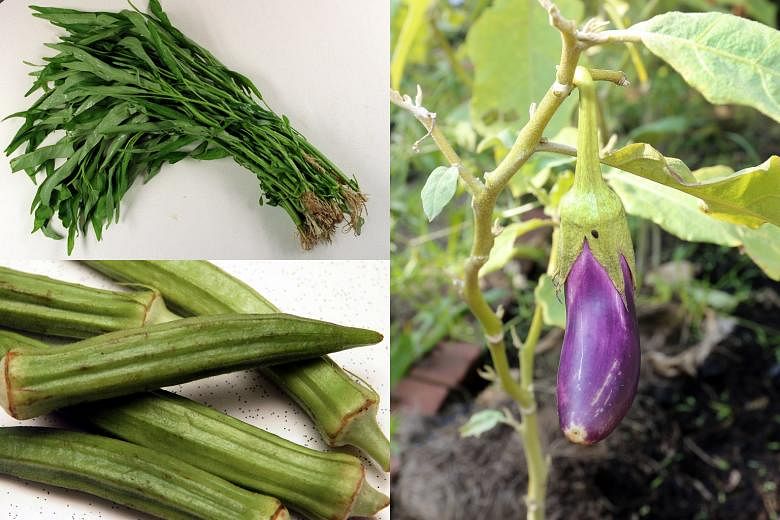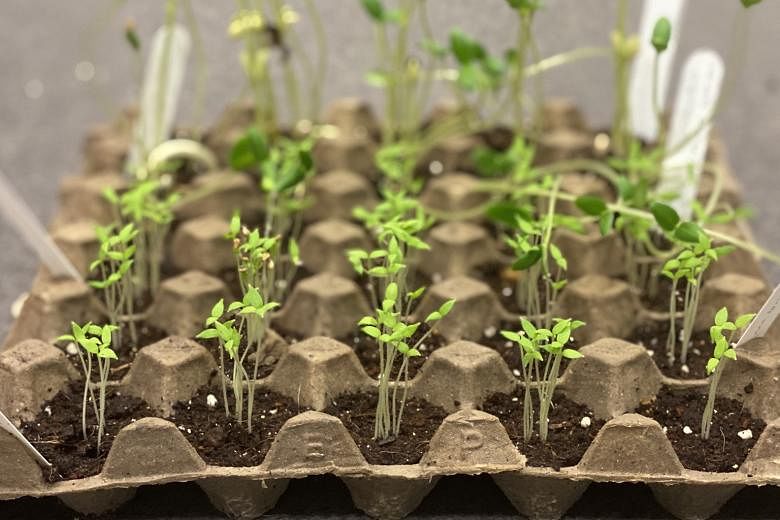The number of community plots for gardening enthusiasts will more than double by 2030, it was announced yesterday.
The National Parks Board (NParks) aims to have 3,000 community gardens - up from 1,500 - and 3,000 allotment gardens, a three-fold increase from the current level. Building for the new plots will start once the Covid-19 situation improves.
NParks also launched an initiative yesterday that includes distributing free packets of leafy vegetable and fruit vegetable seeds to encourage people to grow produce at home.
People can register for the seed packets by visiting www.go.gov.sg/ gardening-with-edibles or calling NParks on 6499-1099. Registration opened yesterday and will close on June 30. The packets will be sent by Aug 1.
The initiative, called Gardening with Edibles, supports Singapore's "30 by 30" goal to produce 30 per cent of its nutritional needs by 2030. The country now imports over 90 per cent of its food supply.
The initiative is supported by DBS Bank and the Tote Board.
Second Minister for National Development Desmond Lee said: "The potential risk of disruption to our food supply during the Covid-19 situation underscores the importance of our local food farms and growing more food locally, as part of our strategy to strengthen food security and build greater social resilience."
The packets contain seeds for one type of leafy vegetable, one kind of fruit vegetable, and instructions in four languages on how to plant them. The seeds cannot be chosen, and the selection will be random.
The selection includes seeds for vegetables, such as Chinese cabbage, chye sim, tomato and brinjal. They take between four and eight weeks to grow.
Seeds can be planted in egg trays to be developed into seedlings before being transplanted into pots.
Mr Ang Wee Foong, deputy director of nursery management at NParks, noted: "There are sufficient seeds for each household to grow a number of plants for consumption. A family can share extra seeds with friends and relatives who have other types of seeds."
Ms Jennifer Yong, who is in her 40s, started growing herbs and edibles such as Thai basil, bok choy and pea shoots on her patio last year after being inspired by a colleague who is an avid gardener.
Ms Yong, the vice-president of payments and platforms at DBS, buys soil and fertiliser online.
Her children said her Thai basil and pea shoots taste sweeter than store-bought ones.
"Growing edibles at home is fulfilling because it is your own fruit of labour, and you know what you put in the soil. There are no chemicals," said Ms Yong.
The expansion of community plots and the Gardening with Edibles programme are part of the country's efforts to transition into a city in nature.
But it is not always rosy.
A 2017 Straits Times article reported that there were turf wars in some community gardens, with fruit being stolen and plants trampled. This led to some gardens being locked and prompted some residents to look for other plots.
Ms Teh Mooi Yan, 52, a gardener of over 40 years, said that having more community plots may not reduce conflict between residents as tension is usually caused by miscommunication.
"A number of the gardeners are people in their 60s and 70s, and they don't speak English or use WhatsApp to communicate, and so there is a communication barrier," said Ms Teh, a lecturer at Nanyang Polytechnic.
"The only way to solve conflicts is to have face-to-face talks with our neighbours and understand their needs and issues."
Seeds that will be distributed
LEAFY VEGETABLES
•Chinese spinach
•Kang kong
•Chinese cabbage/bok choy
•Chinese flowering cabbage/cai xin
•Chinese kale/kai lan
FRUIT VEGETABLES
•Lady's finger
•Cucumber
•Brinjal
•Long bean
•Tomato





